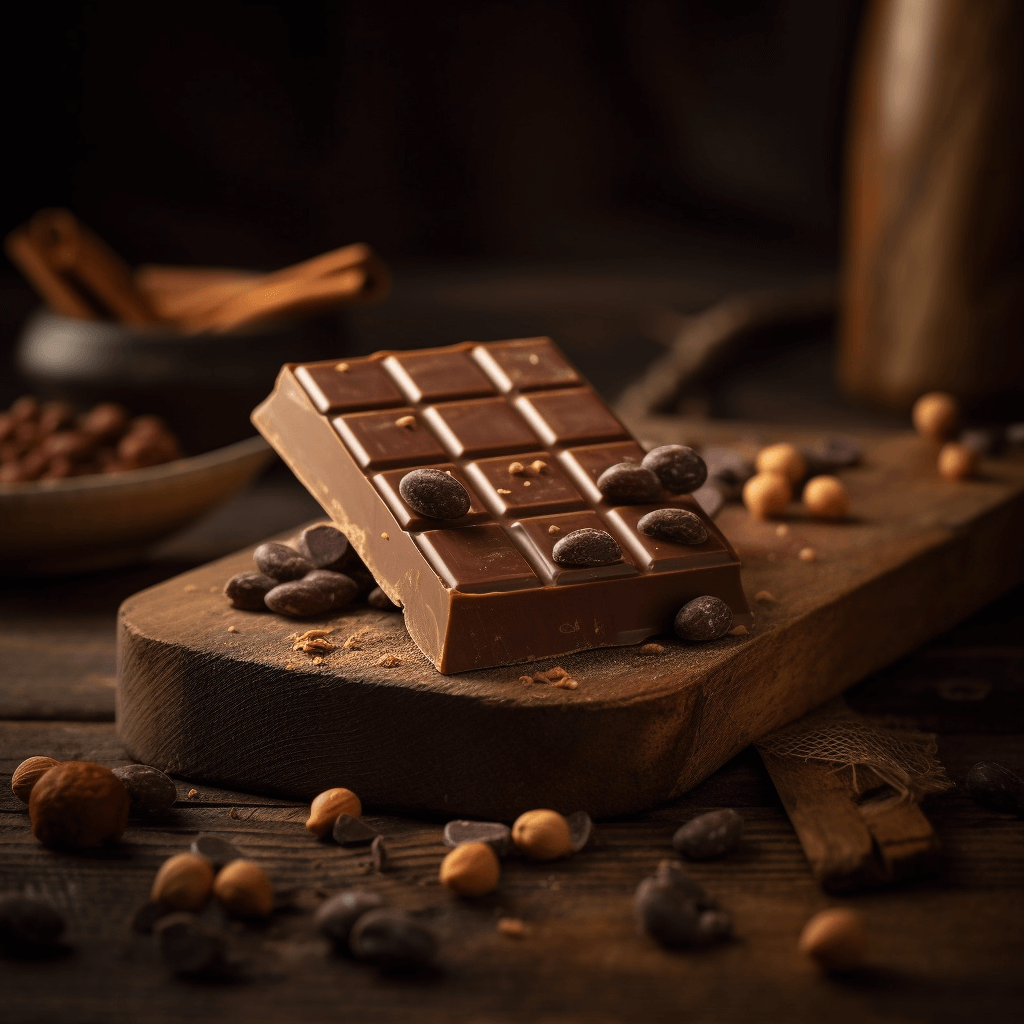
The history of chocolate dates back to ancient times. This exquisite product, which is a favorite treat for many, has a history that begins with the Maya and Aztecs, ancient civilizations of Central America.
Around 1900 BC, the Maya began cultivating cacao trees in their gardens. They used the fruits of this tree to prepare a drink that was quite different from modern chocolate. Cacao beans were ground together with water and various spices, such as vanilla, chili pepper, and honey. The resulting drink had a bitter taste and served as the basis for rituals and celebrations.
The Aztecs, who conquered the territories of the Maya, also began to use cacao beans in their culinary creations. They believed that cacao was a gift from the gods and could provide strength and wisdom. Aztec ruler Montezuma II even drank a cacao-based beverage before visiting his harem, believing it had aphrodisiac properties.
In 1502, when Christopher Columbus discovered America, he encountered local people who offered him cacao beans in exchange for glass beads. However, the unfamiliar bitter taste of the drink did not appeal to the Europeans. Soon after, in 1519, Spanish conquistador Hernán Cortés conquered the Aztecs and brought cacao beans to Europe, where they became the subject of study and experimentation.
By the mid-16th century, the cacao drink became known in Spain, and then in France and England. Europeans added sugar and cinnamon to soften the bitter taste of the drink, which soon became popular among the nobility.
However, the real chocolate, as we know it today, began to take shape in the 18th century. In 1828, Dutch chemist Conrad Van Houten invented the hydraulic press to separate cocoa butter from cocoa solids. This resulted in cocoa powder, which was used to prepare chocolate drinks with a lower fat content.
In 1847, British company J.S. Fry & Sons created the first solid chocolate by mixing cocoa powder with sugar and cocoa butter. In 1875, Swiss chocolatier Daniel Peter added condensed milk to the chocolate mass, creating milk chocolate. This discovery led to the creation of the famous company "Nestlé".
By the end of the 19th century, industrial chocolate production had spread throughout Europe and North America. Thanks to mass production, chocolate became accessible not only to the nobility but also to ordinary people. By the 20th century, there were numerous varieties of chocolate: milk, dark, white, with nuts, and many other fillings.
One of the significant discoveries in the history of chocolate was the invention of chocolate candies - pralines. Jean-Louis Barra, a confectioner from France, created the first pralines in 1912. Since then, the variety of chocolate candies has been steadily growing.
Today, chocolate is one of the most popular treats in the world. It is used in cooking, cosmetology, and even medicine. Research has shown that moderate chocolate consumption has a positive effect on health, improving heart function, boosting mood, and strengthening the immune system.
Thus, the history of chocolate creation is a story of constant development and improvement. From the ancient Maya and Aztecs to modern confectioners, chocolate has become an integral part of the culture and traditions of many countries. From a simple bitter drink of ancient civilizations to sophisticated chocolate products with various fillings and additives - the evolution of chocolate continues.
In the modern world, there are many different brands and manufacturers of chocolate, each striving to offer its unique taste and style. Some of the most famous confectioneries producing the highest quality chocolate are located in Belgium, Switzerland, and France.
Today, chocolate is a symbol of joy, love, and celebration in many corners of our planet.
Ecological and social issues related to chocolate production are also receiving increasing attention. Organizations such as Fair Trade and Rainforest Alliance are working to ensure sustainable development of cocoa production, fair compensation for farmers, and preservation of the environment.
Innovations in chocolate production continue to progress. Today, there are already vegetarian and vegan chocolates, as well as chocolates with reduced sugar content for diabetics and health-conscious individuals.
In conclusion, the history of chocolate creation is an amazing journey through centuries, cultures, and peoples. From ancient civilizations to contemporary masters of confectionery art, chocolate has become an inseparable attribute of our lives, filling it with taste and pleasure.